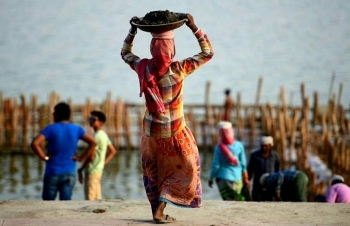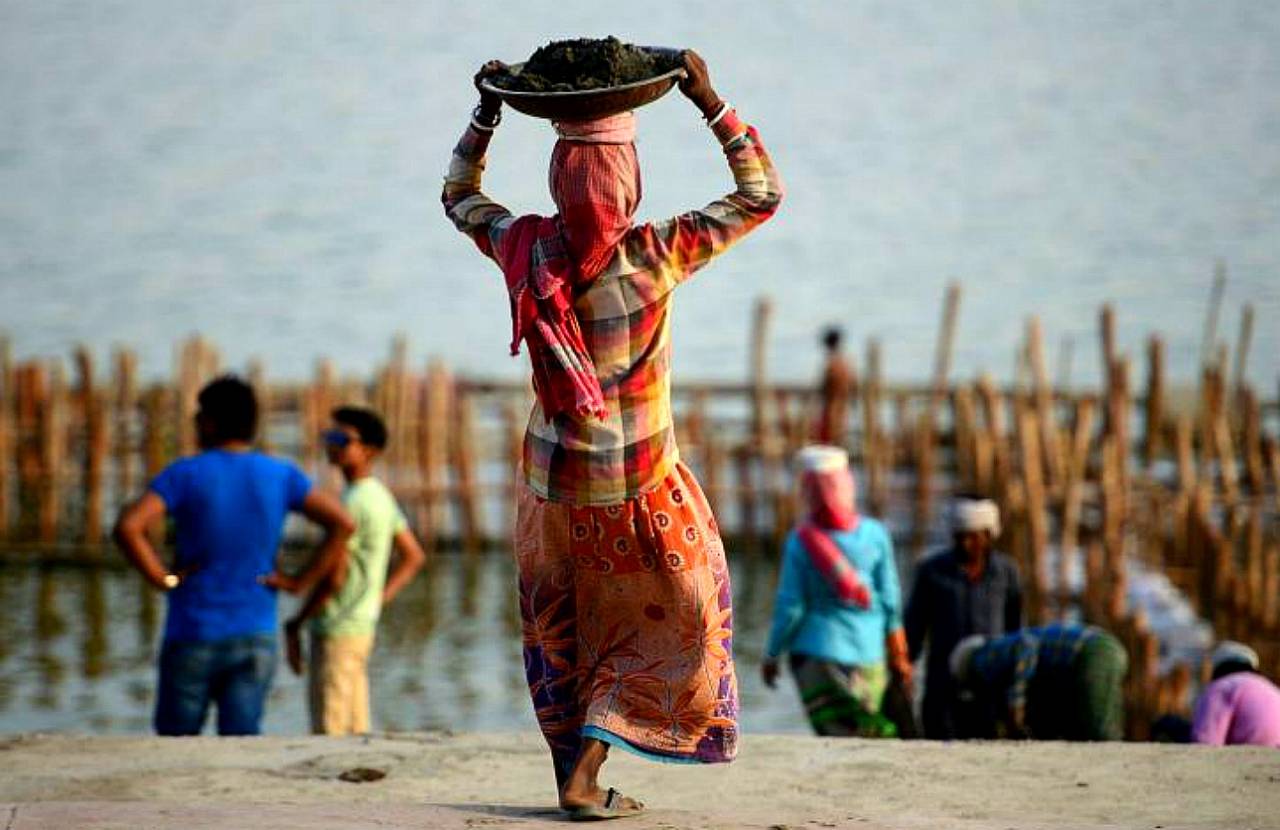
.jpg) Jose Vattakuzhy
Jose Vattakuzhy

In recent years, reservation of jobs for the locals in the private sector seems to be a political trend in India. The Supreme Court has recently dismissed an interim stay by the Punjab and Haryana High Court on the Haryana Government Act 2021. It means that providing 75 percent reservation in private sector jobs to local candidates has been upheld.
Before the Haryana Government, several other States had also passed similar Acts for job reservation for local candidates.
Andhra Pradesh became the first State which introduced job reservations to locals in private firms through the Andhra Pradesh Employment of Local Candidates in Industries/Factories Act, 2019. In Madhya Pradesh, the government has been trying to make reservation of 70 percent of private jobs for local candidates as mandatory.
Maharashtra also made a law of reservation of 70 percent locals at a particular level. The Karnataka government’s new industrial policy (2020) has a provision of minimum employment of 70 percent for Kannada people on an overall basis in all private firms.
Punjab government as well as has brought up similar law to provide almost hundred per cent reservation to locals in government and private jobs. Recently Jharkhand government announced a 75 per cent reservation for locals in private sector jobs with salaries up to Rs 30,000.
One Phase for Vocal for Local
As per experts, all the above initiatives or announcements are attractive and stand as a good idea. It is a classic tool to prevent migration and a device for empowerment; above all it is a social appliance for poverty reduction in the society.
India is one of the largest developing economies in the world, but there is something contradictory about its development. Even though the nation has been experiencing growth, unemployment is on the increasing mode, so it is a fact that the country witnesses jobless in the midst of developments.
In this background, it seems that the intent of the initiatives of the reservation of jobs for the locals in the private sector is not fully comprehended. The reason behind this apprehension is the provisions of the Act would become unyielding efforts in the future, due to legal hindrance, mismatch of employees with employment opportunities and fewer infrastructures.
The legal hindrance for local reservation in private firms is that it is against federalism and the Constitution of India. Article 19 clauses (d) and (e) are guaranteeing all citizens the fundamental right to move freely across the country to find a job and living.
Secondly, sometimes though jobs are available, suitable employees are lacking. While unemployment is on the increase, skilled personnel are not available. It is a huge problem that lack of employment ability exists in the labour market.
Consequently, along with reservation for locals in private firms, the government should take steps to equip the employees or candidates with suitable skills, especially in an era of landscape changes in the labour market due to 4th industrial revolution. In addition, holding an employer-friendly atmosphere to attract private firms is the need of the hour. Otherwise, the reservation initiatives for locals would remain on paper and never yield fruits.
Reduce the Mismatch
Apart from the informal sectors, as per the study, the employability among graduates across India in 2022 is about 55 per cent. Nasscom data show that graduates in engineering and technology fields had an employability rating of just over 55 per cent, and to those graduates with computer stream, the employability scope is around 29 per cent.
Skills and Jobs are a great divide in India. As ILO opined, job-skill mismatch in India could be divided into three categories.
First, there is a skill deficit or skill gap, where a worker’s skill is not up to the requirements of the job.
Second, there is obsolescence. It means the workers lose their skills due to the upgrade in technology.
Third, there is skill underutilization (over-education or over-skilling) which arises when the level of education and skill surpasses those required by the job. The growing mismatch between skills and jobs in the labour market is a serious threat to India’s progress toward sustainable development. This menace would be deeper when India becomes more and more a young country.
Half of the population is below the age of 25, and a quarter is below the age of 14 which makes India the fifth young country in the world. India’s young population is its most valuable asset and most pressing challenge too. It provides the country with a unique demographic advantage. At the same time, this opportunity will be a great loss if no proportionate investment is made in human capital development.
Infrastructure developments
Infrastructure is a foundational tool of services to stimulate economic growth and quality of life. To have an advanced economy, the nation has to undergo intensive infrastructure build-up that would improve the efficiency and competitiveness of the society.
As per social analysis, among the infrastructures, the first and foremost is transportation, which enables communication, trade, and other forms of exchange between people, that in turn establishes economic growth.
Infrastructure will ensure availability of energy which is essential for the conservation of the quantity of life. The digital infrastructure should be accessible and there should be enough facility to get social infrastructures like schools, health care, hospitals, etc.
It should be made easy to obtain government services and the country should have a resilience program to take care of any kinds of disasters like floods, pandemics, war and earthquakes.
Law Enforcement
To overcome legal hindrance to reservation for locals in private sector, the Sates should be capable to follow the criteria of Government employment and services including central administrative services like IAS, IPS, IFS, etc. The Indian Constitution is based on single citizenship -- ‘one nation one citizenship’. All are citizens of India irrespective of whichever state he/she lives in. Therefore, the States don’t confer any separate status as a citizen of any State. India needs centralized planning with regard to the employment of its citizens.
Besides federalism regulations, labour laws are the main roadmap that has to be maintained for building up productive labourers. As said by ILO conventions, labour laws would set up and preserve the processes of being equal in the society wherein employees and employers are equity partners in the process of nation-building. Therefore, labour laws act as a tool to promote worker empowerment as well as worker protection, and regulates individual and collective employment relations for setting minimum standards over secured payment. Thus, a country would choose to put legislation in place to set up fair limits on wages or working hours, either nationally or in particular sectors or States.
To Stop the Migration
In recent years, one after another, unprecedented incidents like demonetization, introduction of the Goods and Services Tax (GST), lockdown due to covid 19 pandemic, Russia-Ukraine war, etc. have intensified the plights of migrants both in rural and urban areas. One-nation-one-ration card, affordable rental housing complexes, E-Shram card portal, and promise of migration policy are some of the steps taken to address the issues of migrants. However, a recent survey reveals that one-third of the workforce of the country is on the move. These migrant workforces are not limited to ordinary workers but they also belong to blue-collar works; most of these migrants are coming under the informal sector. The main sectors that have been engaged by the migrant workers are agriculture, manufacturing, public service, construction, traditional service, and modern service.
Above all, migration can be reduced by way of reservation of jobs for the locals in the private sectors, provided the country could reduce the mismatch between employment and employability, set different types of infrastructure, and ensure law enforcement.
Inference
The reservation of jobs for locals is only one initiative to provide decent work that facilitates ideal poverty eradication mission both in rural and urban areas. In addition, to prevent migration of people, the State governments, which are ready to reserve jobs for local should consider providing better education, and greater job creation with the support of skill enhancement. That inventiveness would be benefited in the backdrops of the sea change in the current labour market, wherein it has been witnessing new work culture like work from home, freelance work, work on the online platforms, and Gig workers. For the formalization of informal work, the best practice is the program of MGNREGA which has the advantage of a scheme and it has impacted a lot in India.
(The writer is founder Director of Workers India Federation (WIF). Email: josevattakuzhy2017@gmail.com)